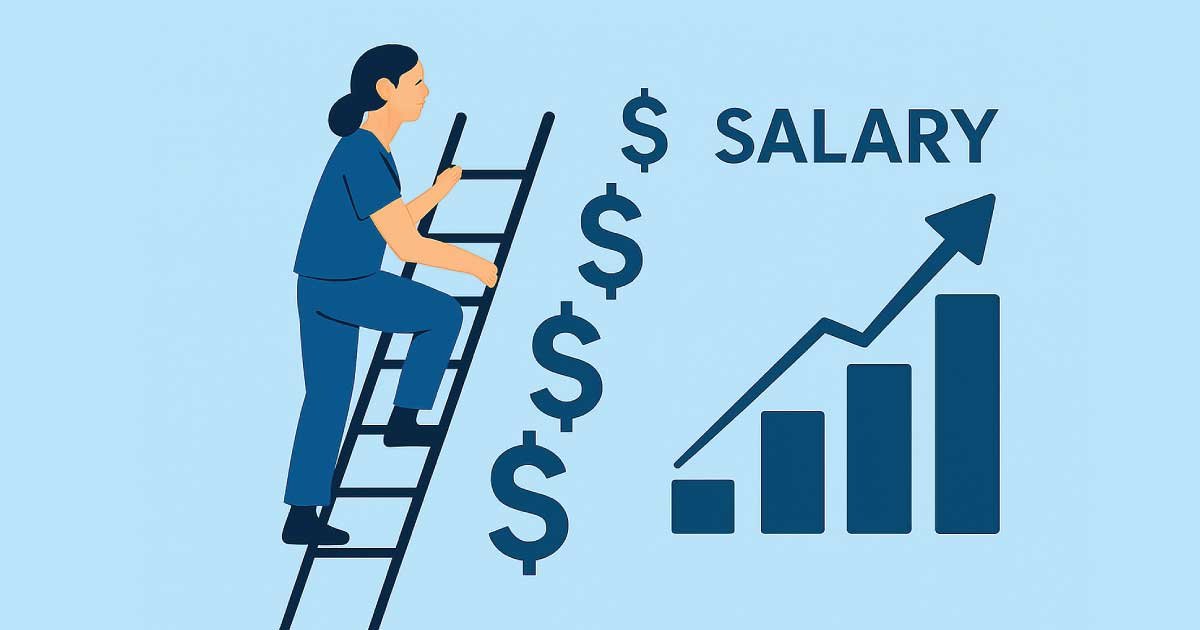Cardiac sonographers in the United States earn an average salary of approximately $70,000 per year. Salaries can vary based on factors such as location, experience, certification, and workplace, with higher earnings in hospitals and specialized clinics.
Cardiac sonographers play a vital role in the early detection and diagnosis of heart conditions. With heart disease remaining one of the leading causes of death worldwide, the need for skilled cardiac imaging professionals continues to grow. Among the many questions aspiring healthcare workers ask, one stands out: What is a cardiac sonographer salary?
In this comprehensive guide, we’ll answer that question ( What is a cardiac sonographer salary? ) in depth—exploring salary expectations, the factors that influence pay, job outlook, and the overall career potential for cardiac sonographers in the United States.
Who is a Cardiac Sonographer?
A cardiac sonographer, also known as an echocardiographer, is a specialized healthcare professional who uses ultrasound equipment to capture images of the heart and surrounding blood vessels. These images, also known as echocardiograms, are used by cardiologists to diagnose and monitor conditions such as heart valve disorders, heart failure, congenital heart defects, and more.
Job Role and Responsibilities
The primary responsibility of a cardiac sonographer is to perform diagnostic tests that provide real-time images of the heart. They must:
- Operate echocardiography equipment with precision
- Prepare patients for procedures
- Record and analyze image quality
- Work closely with physicians to interpret findings
- Maintain patient records and ensure the safety of all equipment
Skills and Qualifications Required
Most cardiac sonographers begin with an associate degree or bachelor’s degree in diagnostic medical sonography or cardiovascular technology. Certification from recognized bodies like ARDMS (American Registry for Diagnostic Medical Sonography) or CCI (Cardiovascular Credentialing International) is often required and can lead to higher earning potential.
Key skills include:
- Attention to detail
- Strong communication and interpersonal abilities
- Technical proficiency with imaging machines
- Knowledge of cardiac anatomy and pathology
How Much Does a Cardiac Sonographer Make?
Now let’s talk numbers. According to data from the Bureau of Labor Statistics (BLS) and industry-specific reports, the average salary of a cardiac sonographer in the United States ranges between $65,000 and $95,000 per year, depending on several factors.
National Average Salary in the USA
As of 2024, the national average salary for cardiac sonographers is approximately $79,000 per year, or around $38 per hour. This can vary based on job location, experience level, and credentials.
Salary Based on Experience
Experience plays a huge role in determining income. Here’s a general breakdown:
-
Entry-Level (0–2 years): $55,000 – $70,000
-
Mid-Level (3–7 years): $70,000 – $85,000
-
Experienced (8+ years): $85,000 – $100,000+
Those who move into supervisory, training, or managerial roles can exceed the $100K mark.
State-by-State Salary Comparison
Salaries for cardiac sonographers vary significantly by state due to the cost of living, demand, and healthcare infrastructure. Here’s a quick look at average salaries in selected states:
-
California: $95,000
-
New York: $88,000
-
Texas: $77,000
-
Florida: $74,000
-
Illinois: $80,000
Highest Paying Cities and Facilities
Urban areas with large hospitals and research institutions typically offer higher salaries. Cities like San Francisco, Boston, and Seattle are known for offering some of the highest compensation rates for cardiac sonographers. Additionally, cardiology specialty hospitals and private clinics may pay more than general healthcare facilities.
Factors That Influence Cardiac Sonographer Salary
Several factors determine how much a cardiac sonographer earns. Understanding these can help job seekers maximize their earning potential.
Education and Certification
Holding advanced certifications such as Registered Diagnostic Cardiac Sonographer (RDCS) or Registered Cardiac Sonographer (RCS) can significantly increase your salary. Additionally, pursuing a bachelor’s degree or continuing education may open the door to higher-paying roles.
Geographic Location
Geographic location remains one of the most critical salary influencers. Coastal and metropolitan areas typically offer higher wages but may also have a higher cost of living. Conversely, rural areas may offer lower salaries but provide cost-effective living options and demand for professionals.
Workplace Settings
Workplace settings can also make a difference:
- Hospitals: Often offer benefits and stable employment but may have a lower hourly rate.
- Private Practices/Clinics: Typically offer competitive pay and more flexible hours.
- Outpatient Care Centers: Can offer a mix of good pay and predictable work schedules.
- Travel Sonographers: Professionals who travel between facilities often earn higher hourly rates and may receive housing or travel stipends.
Specializations Within Cardiac Sonography
Cardiac sonography has multiple subspecialties, such as pediatric echocardiography and stress echocardiography. These specializations require additional training but can lead to higher-paying opportunities, especially in children’s hospitals or academic medical centers.
Benefits and Bonuses in Cardiac Sonography Jobs
Beyond the base salary, cardiac sonographers often receive a comprehensive benefits package that adds significant value to their total compensation.
Health, Retirement, and Paid Time Off
Most full-time positions include:
- Health insurance (medical, dental, and vision)
- 401(k) or pension plans
- Paid time off (sick days, vacation, and holidays)
- Disability insurance
These benefits contribute to a more stable and secure career path, especially for those working in hospital systems.
On-Call and Overtime Pay
In many healthcare environments, especially hospitals, cardiac sonographers may be required to work evenings, weekends, or be on-call. This can lead to substantial overtime pay or call-in bonuses, increasing overall income.
Career Advancement Opportunities
With experience, cardiac sonographers can transition into roles such as:
- Lead sonographer or department supervisor
- Sonography instructor or clinical trainer
- Application specialist for ultrasound equipment manufacturers
- Healthcare administrator in cardiac imaging units
These advanced roles offer higher salaries and leadership potential.
Job Outlook for Cardiac Sonographers
The job outlook for cardiac sonographers is highly promising. According to the BLS, employment in the broader field of diagnostic medical sonography is expected to grow by 10% from 2022 to 2032, which is faster than average for all occupations.
Industry Growth Trends
This growth is driven by:
-
An aging population needing cardiac care
-
Increased emphasis on early detection of heart disease
-
Advances in non-invasive imaging technology
-
Rising demand in outpatient care settings
As the healthcare industry continues to evolve, cardiac sonographers will remain essential players in diagnostic medicine.
Future Salary Potential
With rising demand and ongoing innovation, salaries for cardiac sonographers are expected to grow. Professionals who stay current with training and obtain advanced certifications are likely to see the greatest financial rewards.
Demand Across Different States
States with aging populations and limited healthcare workers—such as Florida, Arizona, and parts of the Midwest—are expected to see the highest demand. This could lead to sign-on bonuses, relocation assistance, and above-average pay for qualified candidates.
Is Cardiac Sonography a Good Career Choice?
Choosing a career in cardiac sonography comes with several advantages, especially for those passionate about patient care and medical technology.
Pros and Cons of the Profession
Pros:
- High salary potential
- Stable job market
- Opportunity to work in diverse settings
- Short educational pathway compared to other medical fields
- Meaningful impact on patient lives
Cons:
- Physically demanding (long hours on your feet)
- Requires ongoing education and certification renewals
- May involve on-call or irregular hours in some roles
Work-Life Balance and Job Satisfaction
Most cardiac sonographers report high levels of job satisfaction, thanks to the variety in daily tasks and the opportunity to help patients in meaningful ways. Those in outpatient or clinic settings often enjoy more regular hours and a better work-life balance.
Conclusion: What is a Cardiac Sonographer Salary?
So, what is a cardiac sonographer salary? While figures vary by location, experience, and workplace, most professionals can expect to earn between $65,000 and $95,000 annually. Beyond the numbers, cardiac sonography offers a meaningful and stable career in a growing healthcare sector.
Whether you are just starting out or considering a career shift, this field provides both financial rewards and the satisfaction of making a real impact in patients’ lives.
Also Read:
FAQs:
What is the average salary of a cardiac sonographer in the U.S.?
The average cardiac sonographer salary in the U.S. is about $70,000 to $79,000 per year, depending on factors like experience, certifications, and work setting. Professionals working in hospitals and specialty clinics often earn more, while entry-level sonographers may start closer to $55,000 annually. Those with more experience or working in cities like San Francisco or New York can earn well over $90,000 per year.
Do cardiac sonographers get paid hourly or annually?
Cardiac sonographers can be paid either hourly or salaried, depending on their employer. Hourly rates typically range between $32 and $45 per hour, with overtime, night shifts, or on-call bonuses adding to total pay. Salaried positions often provide steady annual income along with benefits like paid time off, health insurance, and retirement contributions.
Which state pays cardiac sonographers the most?
As of 2025, California leads in cardiac sonographer salaries, offering $90,000 to $100,000+ annually, especially in metro areas like San Francisco and Los Angeles. New York, Massachusetts, and Washington also offer competitive pay. These higher salaries reflect regional cost of living, demand for cardiac care, and concentration of large hospitals and research centers.
Can cardiac sonographers earn over $100K?
Yes, many experienced cardiac sonographers earn more than $100,000 annually, particularly those with specializations in areas like pediatric echocardiography or stress echocardiography, or those who work in leadership roles. Taking on supervisory duties, traveling assignments, or working in high-demand areas can also push income well past six figures.
Is cardiac sonography a good career in 2025?
Absolutely. Cardiac sonography offers a high-paying, in-demand career with room for growth. With heart disease on the rise and technology improving, skilled sonographers are needed across hospitals, clinics, and outpatient centers. It’s also a fulfilling role for those who want to make a direct impact on patient lives through diagnostic imaging.
How long does it take to become a cardiac sonographer?
Most cardiac sonographers complete a 2-year associate degree or a 4-year bachelor’s program in diagnostic medical sonography or cardiovascular technology. After education, many earn certifications such as RDCS or RCS, which employers often require. Total time to enter the field is typically 2 to 4 years, depending on your educational path.
Disclaimer: This content is based on publicly available information and industry data. Salary estimates are approximate and may vary depending on experience, location, and job role. This article is for informational purposes only and does not constitute financial, career, or legal advice.

